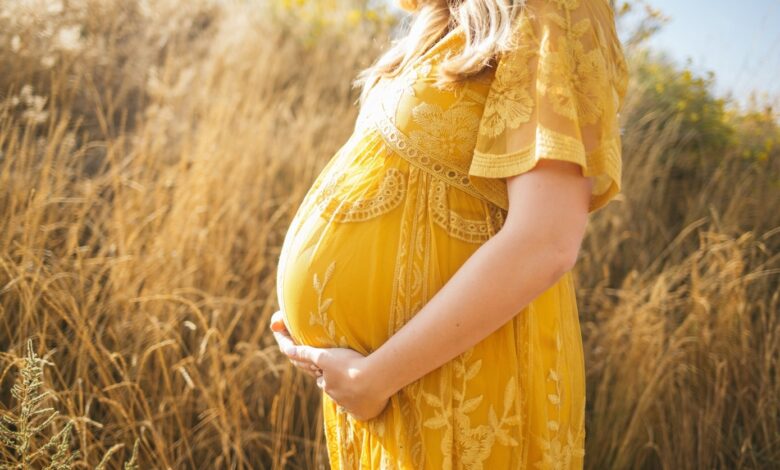Heat exhaustion heat stroke during pregnancy: Signs and symptoms, prevention | Health

Zarafshan Shiraz, New Delhi
Pregnant women deal with lots of physical and emotional changes, with sudden mood swings and crazy cravings and the same holds during hot weather as sky-high temperatures can affect expectant women more. According to health experts, moderate exposure to sunlight is necessary during gestation to earn the sufficient levels of vitamin D.
In an interview with HT Lifestyle, Dr Aruna Kumari, Consultant Obstetrics and Gynaecology at Cloudnine Group of Hospitals in Bangalore’s Bellandur, explained, “During pregnancy, the metabolic rate – the number of calories a pregnant women burn while her body is at rest – increases 20 percent in the third trimester. Carrying twins adds an extra 10 percent. Pregnant women’s body can deploy a few natural defences as the mercury rises. For example, the sweat glands secrete water on the skin’s surface, and when it evaporates, the temperature of nearby blood vessels decreases.”
She elaborated, “Sweating helps circulate cooler blood through your body, decreasing your overall temperature. Extreme weather events can also put babies’ health at risk — and global warming may increase this health risk going forward. One study from the Journal of the American Heart Association reported that higher temperatures due to climate change may increase the number of congenital heart defects in the US.”
Risks of heat exposure during pregnancy
According to Dr Aruna Kumari, here are the four main concerns for pregnant women during a heat wave:
- Heat cramps – Of all the heat-related conditions, heat cramps are less dangerous. But these uncomfortable involuntary spasms can come up if you’re exercising during hot weather. Lasting longer than the usual nighttime leg cramps, heat cramps may affect the calves, arms and stomach area. It will be worse if there is dehydration or electrolyte deficiency.
- Dehydration – When the body loses more fluid than it takes in (not drinking enough water in hot weather or working out too intensely), dehydration can develop. Placental perfusion can be hindered if less blood flow due to dehydration. Dehydration can also cause increased uterine activity and up the risk of an early labor or false labour pains so it’s extra important to drink enough water when you’re pregnant.
- Heat exhaustion – It occurs during hot weather, high humidity or vigorous physical activity. Heat exhaustion can lead to heat stroke, which is dangerous and even life-threatening, and it’s sometimes tricky to spot as the symptoms are similar to the ones pregnant women deal with regularly, like fatigue, nausea and muscle cramps.
- Heat stroke – If heat exhaustion is prolonged, heat stroke may occur. This is the most severe type of heat-related illness, and it can happen when the body temperature rises to 104 degrees Fahrenheit or higher. Heat stroke is dangerous for both women and their developing babies and may lead to brain, heart, kidney and muscle damage.
Signs of heat exhaustion and heat stroke during pregnancy
Dr Aruna Kumari suggested that if you feel weary and thirsty after spending time outside in hot weather, be aware of the following signs of heat exhaustion and heat stroke during pregnancy so you can get help:
- Fatigue
- Dizziness
- Fainting
- Cool, moist skin with goosebumps
- Heavy sweating
- Weak or rapid pulse
- Muscle cramps
- Headache
- Nausea
- Vomiting
- High body temperature (104 degrees Fahrenheit or more)
- Confusion
- Slurred speech
- Racing heart
- Fast breathing
Tips to prevent heat exhaustion and heat stroke during pregnancy
Dr Aruna Kumari advised, “Check the forecast during warmer months so you know when to seek out air conditioning and lay low inside. Additional ways to prevent heat-related illnesses during pregnancy are – take extra care when the temperatures soar to keep yourself and your baby safe. Pregnancy and hot weather aren’t a good combination, so stay inside during a heat wave, drink lots of water and skip strenuous activity until the temps drop.”
Recommending tips to stay healthy and hydrated this summer, she insisted:
- Drink up: drinking lots of water and juices is the main key to maintain good hydration in this hot summer. Consuming citrus or fresh fruits also helps in hydration with lots of minerals, Vitamin C in them.
- Moisturise: As much as the body, your skin needs to stay hydrated too. Pamper your skin by applying moisturiser and always wear sunscreen before stepping out into the sun.
- Relaxation: Give your body a break from the anxiety of pregnancy, and take plenty of rest in a cool and cosy room.
- Frequent showers: Cool down your body temperature by indulging in a couple of showers daily.
- Light clothing: Dress in loose fitting and light clothes to allow some room to breathe. Cotton cloths are the best for summer. Layered clothing is a useful method, when not required can be taken off.
- Skip midday sun. Stay indoors during the hottest time of the day — from 10 a.m. to 2 pm.
- Check your urine. A dark color indicates you’re low on fluids and could signal dehydration.
- Avoid heavy food: Intake of light meals and plenty of fruits and vegetables can maintain the consumption of nutritional food and keep a stable body temperature level.
- Workout: As pregnant women are advised to exercise, it is recommended they workout either early morning or after sunset to avoid heat exhaustion.
- Cold- compress: Using a cold- compress on your palms and soles, help in cooling down the body temperature.
- Skip hot tubs and saunas during pregnancy. High temps and humidity aren’t the only culprits. Soaking in a hot tub or using a sauna, which aren’t recommended in pregnancy, can also lead to dehydration and heat-related illnesses.
